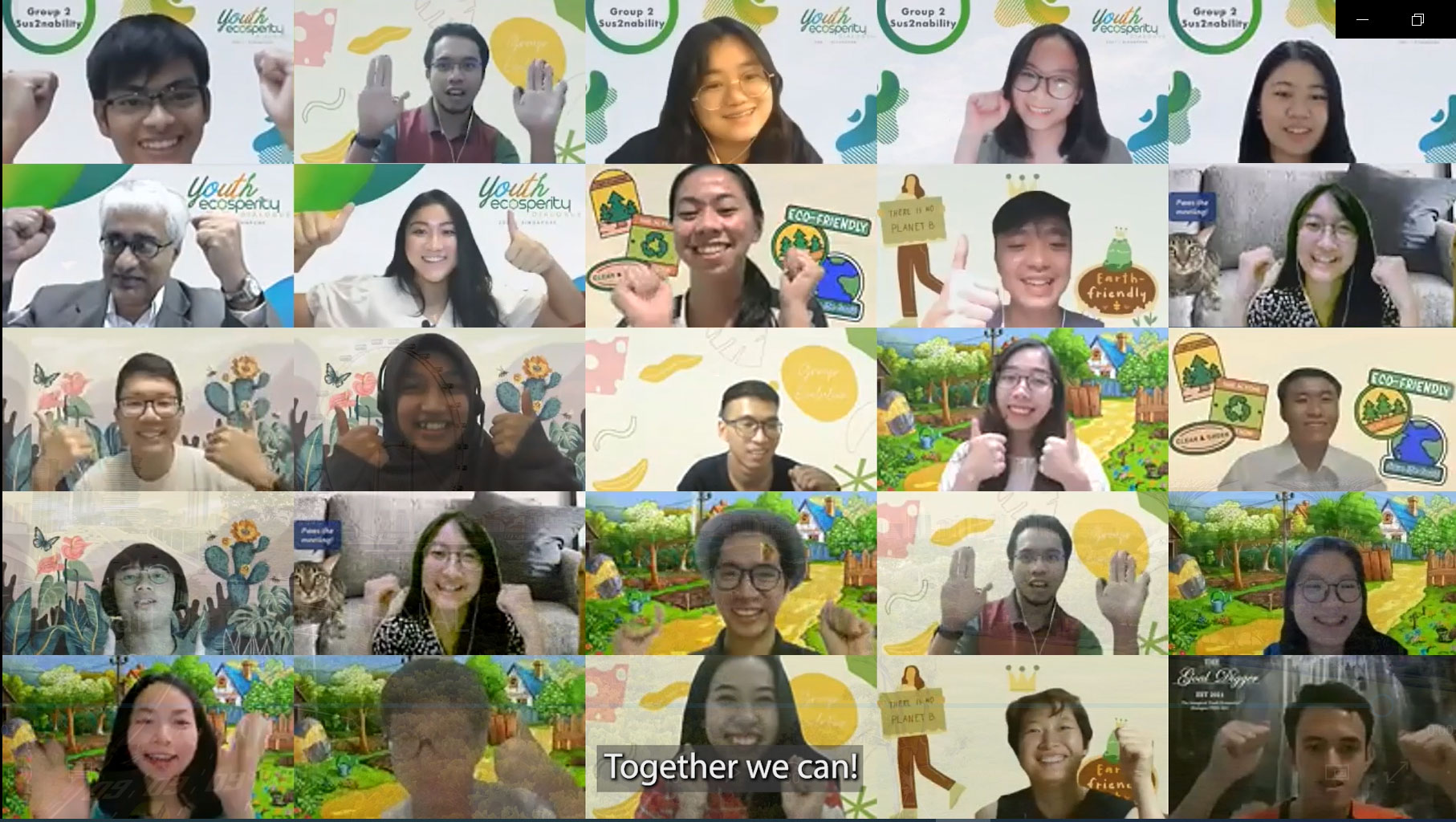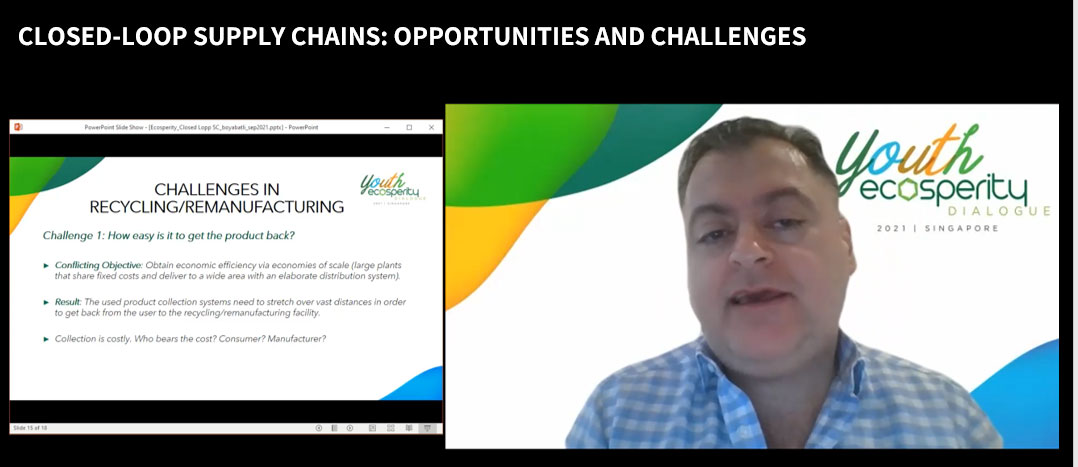
More than 80 youths from over 35 universities and institutions around Asia took part in Youth Ecosperity Dialogue 2021, which was organised by Singapore Management University, the Lee Kong Chian School of Business and supported by Temasek Foundation.
The five-day, fully virtual programme ran from September 27 to October 1 and attracted students from 14 countries around Asia, mainly from Southeast Asia, China and India.
They came from diverse disciplines such as medicine, international relations, chemistry, accountancy, law, psychology, media and environmental engineering.
Youth Ecosperity Dialogue is an annual platform where student leaders from Asian institutes of higher learning come together to discuss the challenges in sustainability and collaborate on solutions. It also allows them to connect with global thought leaders and like-minded international corporations.
This is the first year the event has been held virtually as it is typically held in-person. It was not held in 2020 because of the Covid-19 pandemic.
The event in 2021 featured speakers such as Dr Jane Goodall, founder of the Jane Goodall Institute; Mr Mikkel Larsen, the Chief Sustainability Officer of DBS Bank; and Dr Uwe Krueger, the Head of Industrials, Business Services, Energy and Environment at Temasek International.
There was also a dialogue session with three social entrepreneurs: Ms Fengru Lin of Turtle Tree, Mr David Chen of Golden Sunland, and Mr Nicholas Lim of TreeDots.
In her welcome address, Professor Lily Kong, the President of SMU, noted that the event would provide an opportunity for the students to have interactive discussions with global leaders in the field of sustainability.
“By talking about relevant topics like Asia’s nature-based climate solutions, environmental, social and governance, or ESG, principles, and sustainable finance and consumption, you will begin to understand the scale of societal and business challenges for your generation,” she said.

Speaking at the opening, Professor Shantanu Bhattacharya, the Deputy Dean of LKCSB, noted that during the last decade, the number of products offered to the market has exploded while their lifespans have gone down.
“Given the explosion in consumption, there has been a growing pressure exerted on business by governments, by society in general, and also by internal stakeholders such as shareholders, to pay more attention to the environmental and resource consequences of the usage of products and services offered, and the processes that they deploy.”
One result of this pressure is the movement towards the triple bottom line reporting of profits, people and planet, he said.
He added that sustainability concerns would only grow in the future. “Just like businesses have to report their profit and loss statements annually, governments increasingly require businesses to report their carbon footprints annually.”
Professor Bhattacharya was also among the members of LKCSB’s faculty to lead dialogue sessions with the students. He led a session on the UN’s Sustainability Development Goals, and a session on how business can adopt the triple bottom line. Meanwhile, Associate Professor Hao Liang, a DBS Sustainability Fellow, examined how finance and new technology can be used to address sustainability challenges while delivering reasonable returns. A discussion on closed loop supply chains was led by Associate Professor Onur Boyabatli, another DBS Sustainability Fellow, while Associate Professor Michelle Lee looked at sustainable consumption.


As part of the programme, the students delivered presentations on the last day about what they had learned over the five days. They had to work in trans-national teams for this.
The formation of cross-border teams was one of the objectives of the event. Said Benedict Cheong, the Chief Executive of Temasek Foundation International: “As the world grapples with issues of liveability and sustainability, and of course limited resources, each of us — our countries, our cities, our communities — need to find innovative and sustainable solutions.”
To do this effectively, however, would require that people learn from each other, he said. “Learn from each other’s experiences, mistakes, insights, wisdom. And as we learn from each other, we will find opportunities to collaborate with each other.
“Climate change, sustainability, liveability, like the pandemic, does not understand international borders. And so the need for us to collaborate becomes much much more important, much much more pertinent in this time.
“We need all of you — motivated and passionate young leaders — to network, exchange ideas and continue to press on, to work together, to make a positive impact on our communities,” he said.
The students who took part in the event gave the programme a thumbs-up. One student wrote that it was “a great opportunity to learn and reflect on my own consumption habits,” while another loved the speakers and the opportunity to connect with different people.
One student said the event helped to rekindle his or her passion and hope for sustainability. “It was great to listen and converse with people who have that spirit, learning their ideas and thoughts on the matter despite not coming from the same background/field,” the student wrote. “Hoping for more opportunities like this in the future and hoping it happens off screen too. That would be lovely.”
The Youth Ecosperity Dialogue is a parallel youth track under the umbrella of Ecosperity Week, an annual event organised by Temasek. The focus of the 2021 event was “Tomorrow Starts Today — From Crisis to Opportunity.”